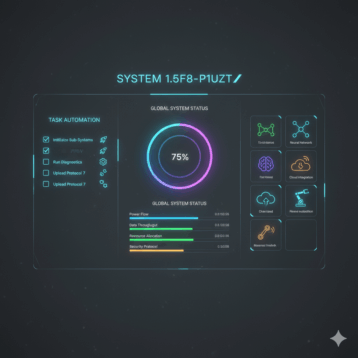PHP, or Hypertext Preprocessor, is one of the most popular programming languages for the back and. It lets developers craft powerful, highly scalable, interactive, and reliable websites and apps for businesses across industries. Can your company benefit from building its online presence on PHP? Discover the biggest strengths of this language and its best applications in 2021.

Key Facts About PHP
In 2021, PHP is regarded as the back-end programming language of the future, and for good reason. It is impressively flexible and simple to understand. Thanks to its excellent functionality, software development companies like Appkong.com build web pages and apps that look and perform exactly as their customers want them to.
PHP was invented by Rasmus Lerdorf almost three decades ago — in 1994. It is still one of the easiest scripting languages thanks to its well-organized and logical syntax. This coding methodology powers some of the biggest websites, allowing simple and efficient optimization. PHP supports all popular OS, types of sites, and web applications. It has been chosen by such giants as:
Since the beginning of this millennium, the development industry has been evolving at breakneck speed. New technologies are one of the key drivers of growth. The corporate sector is increasingly dependent on the internet. Websites and apps require reliable server-side technologies, which is why PHP is in high demand.
The Biggest Advantages of PHP
Every website or app needs a robust back end to function properly. It is the foundation of online success. Recent back-end innovations have allowed developers to facilitate business growth with smooth navigation, high-quality interactive interfaces, and fast loading time. Here are the top benefits of using PHP in 2021.
1. Frameworks and Updates
In recent years, PHP has become stronger and more efficient thanks to multiple versions and upgrades. Such modules as Symfony, Laravel, Lamina, Yii, Cake, and Code Igniter have made back-end programming easier and more convenient. These frameworks have filled the gaps in PHP functionality. Many developers consider PHP Laravel as one of the best frameworks.
Systems based on this language include libraries and plugins that accelerate the development stage thanks to their simplicity. They create an ecosystem where PHP runs faster. Its latest versions facilitate rich functionality and immersive designs for web development projects. For instance, WordPress, one of the most popular CMS in the world powering over 445 million sites, was written in the PHP language.
2. Extremely Speedy
Companies want to build their apps and websites most efficiently — i.e., with less investment and time required. Here, PHP also shines. It relies on its own memory, which is why the loading time for sites is shorter in comparison with other languages. Faster processing speed combined with ease of use makes PHP a supreme choice for developers.
3. Open-Source Language
Sadly, some business owners still assume that open-source software can’t be reliable. In reality, free distribution has no connection to quality. Moreover, it is another major advantage. Obviously, as PHP is free to use, enterprises do not have to pay or receive permissions to use it. This makes PHP particularly attractive for startups whose budgets are tight.
4. Tailored
PHP developers can use a wide array of libraries and resources to create personalized web and mobile solutions. They can craft highly customized designs under their clients’ vision. As this language is extremely flexible, they can make changes quickly even after completing the project. Developers do not have to write fresh code or command functions.
Software experts may also combine PHP with other languages like Ruby or Java. This allows them to expand the flexibility even further. To sum up, if your company needs a flexible, highly personalized, and fully functional website or app, PHP is a wise choice.
5. Scalability
High-quality digital solutions support growth. Your company needs a website or app that will evolve along with it. This is one of the primary criteria for choosing a programming language. It must be scalable to support ever-increasing traffic.
Web apps built on PHP are impressively extensible. They can handle a significant rise in traffic and provide the same quality of user experience thanks to the deployment of additional servers. What’s more, PHP is compatible with all web browsers.
6. Compatibility
PHP may be combined with a wide variety of OS. It can run on Linux, Solaris, UNIX, and other platforms. Developers can integrate Java effortlessly, and make other additions without the need for redevelopment. This language works seamlessly with such databases as MySQL, Apache, and PostgreSQL. In terms of compatibility, PHP is a timesaver and a cost-effective solution.
6. More Control
PHP gives developers more comprehensive control over the process. While many other languages include lengthy complex scripts, PHP is relatively simple. A few lines of code are enough. Moreover, the integration of tags lets the experts add or mix them easily to spice up the content and make it more dynamic. They need not worry about the position of the code, either. It is written between tags, while functions and codes do not have to follow a specific order.
7. Supportive Community
PHP is not only a programming language. It is also a robust, widespread, and active developer community. Its members provide advice and assistance to developers if they get confused. PHP experts are continuously exchanging experience, feedback, and ideas on language improvements. The strong developer culture allows the system to grow, evolve, and become better.

To Sum Up
The back end of your website or app is just as important as its UI, design, and navigation. Companies must choose their programming language carefully, and PHP is the optimal choice for many brands. It offers a plethora of resources that can be easily rewritten and used without additional cost. The simplicity, ease of integration, cost efficiency, and open-source nature make PHP a leading choice for the server side.










